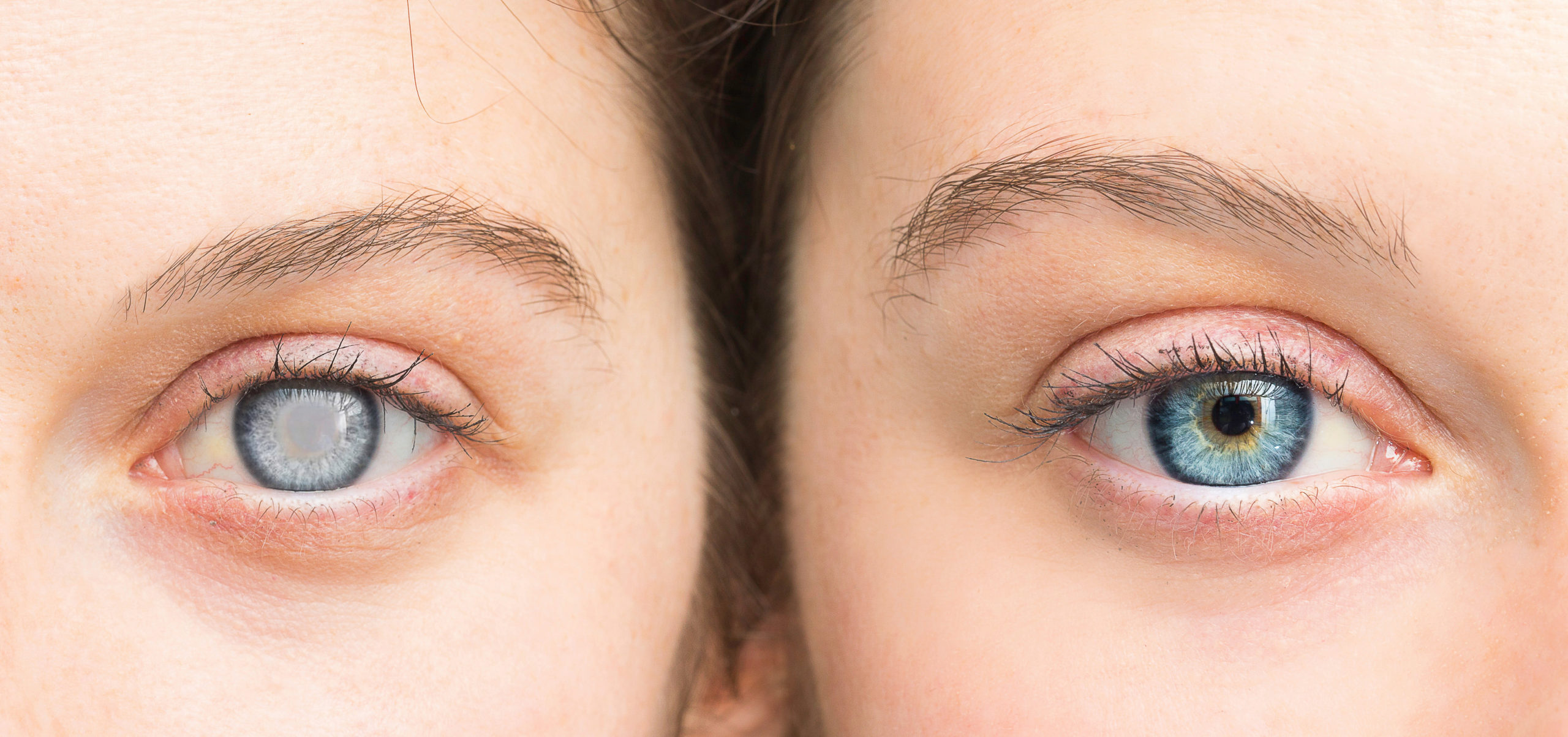Cataract Center
What is a Cataract?
Cataract refers to the lens within the eye which has become cloudy with time. Cataract causes your vision to become hazy and blurry. Cataract eventually affects everyone and usually causes vision problems such as glare, halos, and reduced vision in 60 and 70 years of age. Certain medications and medical conditions such as diabetes can cause early cataract formation.
What are the Symptoms of Cataracts?
- Cloudy or blurry vision
- Colors seem faded
- Poor night vision
- Glare and halos around lights
- Frequent changes of eyeglass prescriptions
- Multiple images in one eye
Frequently Asked Questions
Let us help answer those for you!
01
How are cataracts treated?
There are no medications to reverse or cure cataracts. Sometimes glasses can help but the vision will progressively get worse with time. The only effective treatment is the replacement of the cloudy lens with a new clear lens. Dr. Nazari uses modern and proven technology to implant a new lens. The new lens will restore your vision and, in most cases, will reduce the need for glasses.
02
When can I go back to work?
It of course depends on the type of work but most are able to return to work the very next day. No swimming for a week but you can shower the very next day and use makeup in 3 days.
03
Which lens is right for you?
Lens selection is very important because the new lens will deliver clear vision and vivid images and for certain people reduce dependence on glasses and contact lenses. There are 3 choices:
- Monofocal Lens with minor astigmatism treatment – provides excellent distance vision with enhanced image quality.
- TORIC Lens- provides excellent distance vision with enhanced image quality and corrects astigmatism
- Multifocal Lens- provides good vision at near and far with slightly reduced image quality
04
What if I have had LASIK in the past or RK surgery, does this affect my outcome?
The surgical modification of your cornea does play a part in the IOL calculations (implant), but we have a great deal of experience in this area and perform special measurements to insure the best outcome.
05
What to expect the day of surgery?
You spend approximately 2 hours in the surgery center. Intravenous sedation is given to make you comfortable. The eye is cleaned for surgery. The procedure usually takes less than 10 minutes. After the surgery a clear shield is placed on the eye and you start the drops the same day. You will follow up the next day in the office.
06
Your Surgeon — Kourosh Nazari, MD, FACS
Dr. Nazari is board-certified and specializes in cataract and refractive procedures with 20 years of experience. He has performed more than 30,000 successful cataract procedures and is one of the most experienced cataract surgeon in the area. He performs minimally invasive cataract procedures with no needle injection or stitch in a safe outpatient setting. Most of his patients are able to see and function the next day after cataract procedure. Dr. Nazari is a fellow of American College Surgeon and American Academy of Ophthalmology. He received his cataract surgery training at University of Pittsburgh Medical Center.
07
What types of drops are used after surgery?
After surgery one bottle of medication which has a combination of antibiotics and steroids will be used 4 times a day for the first week, then 3 times daily for the second week, twice daily for the third week, once daily for the fourth week.
08
What is astigmatism?
Astigmatism is a common and generally treatable imperfection in the curvature of the eye that causes blurred distance and near vision. Astigmatism occurs when either the front surface of the eye (cornea) or the lens inside the eye is not uniform. Instead of having one curve like a round ball, the surface is football-shaped. This causes blurred vision at all distances. Astigmatism is often present at birth and may occur in combination with nearsightedness or farsightedness. When there is astigmatism, treatment options are corrective lenses or surgery.

